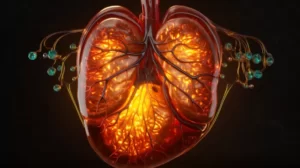When it comes to discussing the costs of alcohol consumption, most conversations hover around liver health and the risk of diseases like cirrhosis or hepatitis. But there’s a huge elephant in the room that’s often overlooked: the financial impact excessive drinking has on society. The Centers for Disease Control and Prevention (CDC) peeled back the curtain with a study focused not on health, but on the economics of boozing too much—and the bill is staggering.
The Cost of Excessive Drinking: A Wake-Up Call
Imagine a giant sinkhole swallowing up a whopping $224 billion of the U.S. economy in a single year. That’s the cost of excessive alcohol consumption in 2006, according to the CDC’s research. Lost productivity at the workplace was the heaviest hitter, racking up 72% of the total cost. Medical expenses accounted for 11%, while law enforcement and criminal justice had a 9% share.
What’s sobering to note is that these numbers might just be the tip of the iceberg. Mental health care expenses, as well as the emotional toll on the drinker and their loved ones, weren’t considered in the calculation. It’s an oversight that could mean the real cost is even higher.
Dr. Thomas R. Frieden, the CDC’s director back then, didn’t mince words when he said, “This research captures the reality that binge drinking means binge spending.” He warned that if left unchecked, the economic burden of excessive drinking could spiral out of control.
The Sobering Reality of Lost Productivity
When the workforce engages in heavy drinking, it’s the economy that takes a hangover. The bulk of the financial load comes from the diminished capacity to work efficiently. Whether it’s absenteeism, decreased output, or the costs associated with alcohol-related illnesses, the price paid is measured in lost dollars—a staggering 72% cut from the $224 billion pot.
The Healthcare Hangover
Medical bills linked to excessive alcohol use are no small tab, either. From emergency room visits to long-term care, the healthcare system pumps out billions to deal with the aftermath of heavy drinking. Preventative measures, treatments, and rehabilitation services add up, and the 11% spent doesn’t even scratch the surface of alcohol’s blow to public health.
Law Enforcement and Justice: Paying for the Pour
When alcohol flows too freely, it’s often the police and courts that are left to clean up. With DUI arrests, public disturbances, and alcohol-fueled crime, the community ends up shouldering the cost of law enforcement and justice processes. At 9% of the total financial burden, excessive drinking proves it’s not just a personal issue, but one that the entire society pays for.
Learning from the Numbers: Prevention Is Key
The CDC’s eye-opening study serves as a stark reminder that the impact of alcohol extends far beyond the individual. It shines a spotlight on the pressing need for policies and programs that curb excessive drinking. From raising awareness and education to providing better access to treatment, investing in prevention could save billions and most importantly, lives.
In conclusion, excessive alcohol consumption is an expensive habit—not just for the drinker, but for everyone. Lost work productivity, healthcare costs, and law enforcement expenses add up to create a financial burden no one can afford to ignore. It’s a clear sign that when it comes to alcohol, moderation doesn’t just keep you healthy; it also keeps your wallet and community in better shape.



![8 Simple Rules to Refresh Your Body with a Healthy Cleanse [See Pictures]](https://naturalhealthreserve.com/wp-content/uploads/2024/01/8-rules-healthy-cleanse-slideshow-300x168.webp)